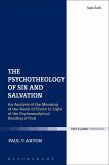Steven J. Duby examines the doctrine of divine simplicity. This discussion is centered around the three distinguishing features: grounding in biblical exegesis, use of Thomas Aquinas and the Reformed Orthodox; and the writings of modern systematic and philosophical theologians.
Duby outlines the general history of the Christian doctrine of divine simplicity and discusses the methodological traits and essential contents of the dogmatic account. He substantiates the claims of the doctrine of divine simplicity by demonstrating that they are implied and required by the scriptural account of God. Duby considers how simplicity is inferred from God's singularity and aseity, as well as how it is inferred from God's immutability and infinity, and the Christian doctrine of creation.
The discussion ends with the response to major objections to simplicity, namely that the doctrine does not pay heed to the plurality of the divine attributes, that it eradicates God's freedom in creating the world and acting toward us; and that it does not cohere with the personal distinctions to be made in the doctrine of the Trinity.
Duby outlines the general history of the Christian doctrine of divine simplicity and discusses the methodological traits and essential contents of the dogmatic account. He substantiates the claims of the doctrine of divine simplicity by demonstrating that they are implied and required by the scriptural account of God. Duby considers how simplicity is inferred from God's singularity and aseity, as well as how it is inferred from God's immutability and infinity, and the Christian doctrine of creation.
The discussion ends with the response to major objections to simplicity, namely that the doctrine does not pay heed to the plurality of the divine attributes, that it eradicates God's freedom in creating the world and acting toward us; and that it does not cohere with the personal distinctions to be made in the doctrine of the Trinity.









